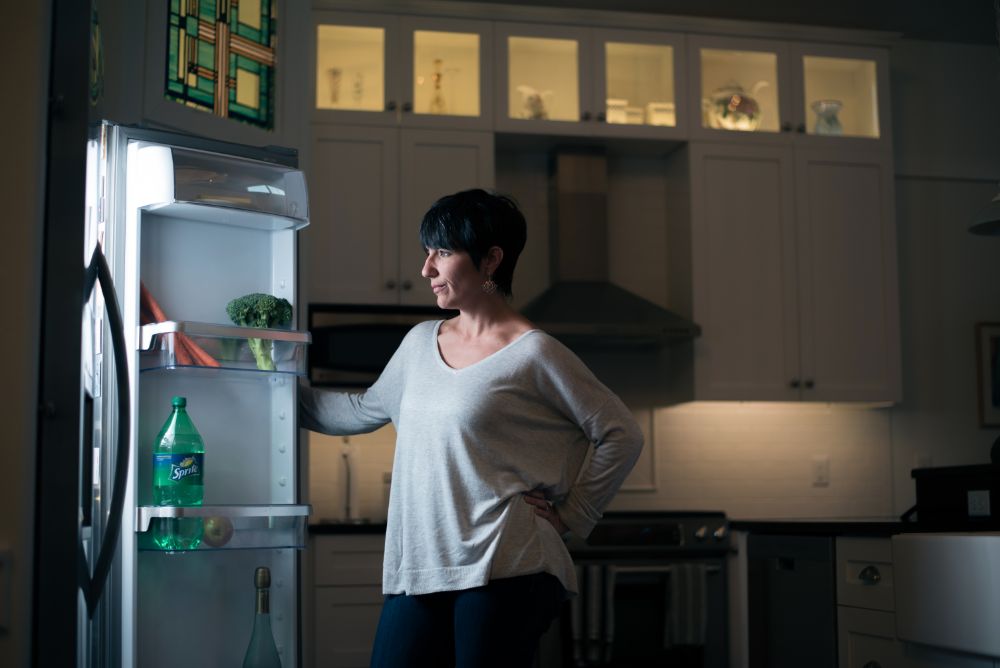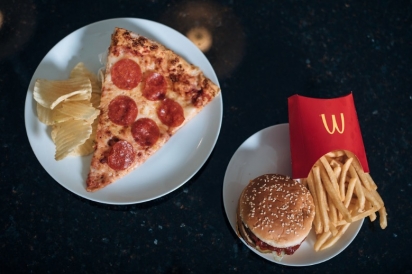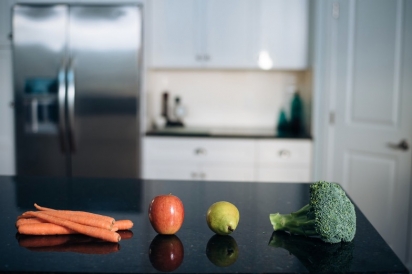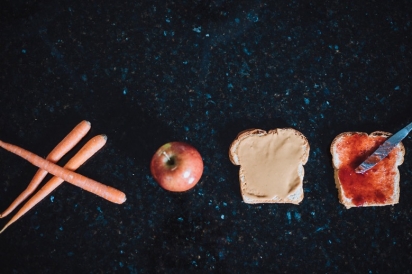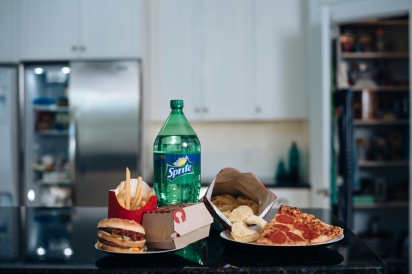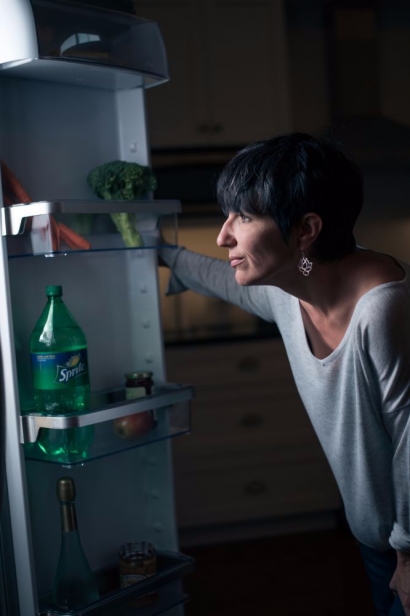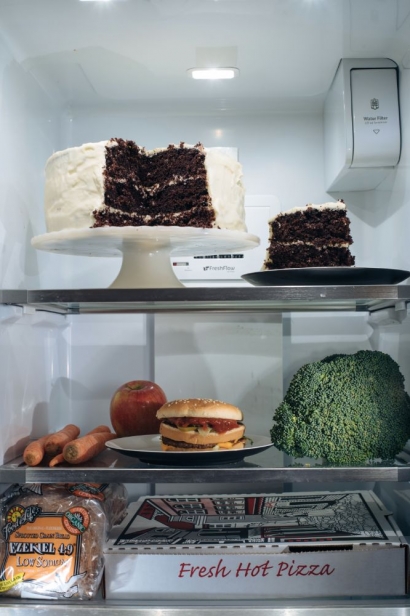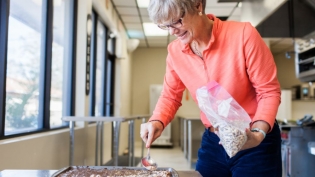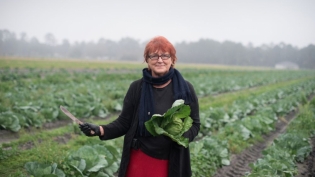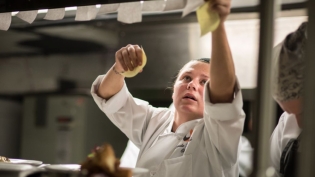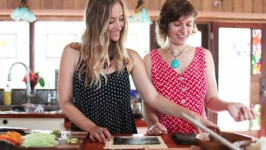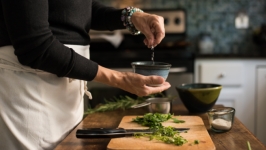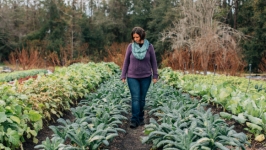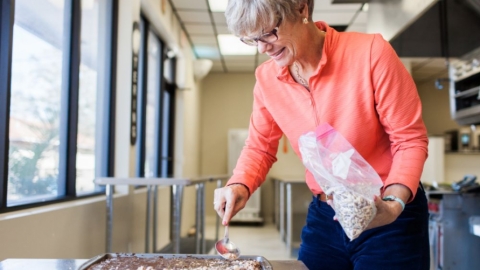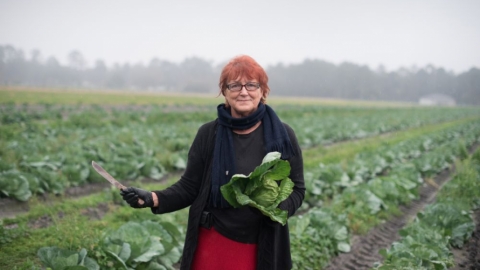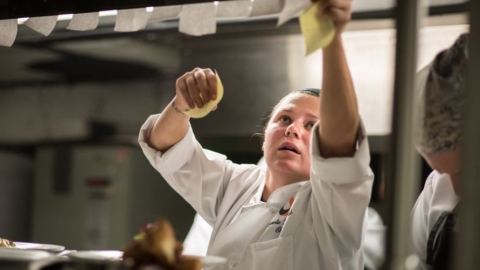Farewell to Food Guilt
Stuffing food in an envelope and mailing it overseas seems an unorthodox form of protest. Unless you're an 8-year-old who is forced to finish her dinner because "there are starving children in Africa."
While we would have hoped the protesters of our youth might have gone on to start a revolution, sadly, most have likely joined the eight out of 10 American women who suffer from food guilt. And yes, we mean suffer! Food guilt has many flavors, new ones we’re learning more about each day. It’s about what we eat and what we don’t eat, what we feed our families and having the perfect relationship with food.
THE FLAVORS OF GUILT
While not many of us took to protest, we can relate to being forced to clear our plates, and the remnants of that eating experience linger. Some of us still struggle with pushing back from a partially full plate without packing our bags for a guilt trip. Let’s face it, we all have traditions associated with food from our childhood and we carry those into adulthood. These traditions, whether determined “good” or “bad,” shape our views about food today, how we carry on with them or how we change them completely.
At some point, our definition of a “good” relationship with food changes from our ability to clear a plate to our ability to deprive ourselves. Having dessert makes us bad. If we deprive ourselves of dessert, we are good. Consciously or subconsciously, this conversation happens in too many women’s heads, too much every day. When did food get to be about not eating? And how can this be the case when we reward ourselves with a cookie or a brownie after a particularly stressful day?
We could psychoanalyze this contradiction, but we’re already overthinking here. Our bodies need fuel to function. Food is fuel first, and whatever else we think it is second. Of course, we all want to feed ourselves healthy, delicious food, so why can’t we? And why can’t we plan to enjoy our pizza, macaroni ’n cheese and wine? Why can’t we have it all?
SELF-WORTH & FOOD GUILT
Self-worth is tied to food guilt, not to what you’re putting in your mouth. A negative body image leads to guilt. While in the short term guilt may lead to self-deprivation, in the long run it does not lead to better choices. A positive body image gives you the power to define “better.” Today, better may be celery sticks. Tomorrow, “better” may be a piece of chocolate cake. If we simply plan for those foods and enjoy them—in moderation, of course—we could have everything we love and still be healthy. Even if you really did eat the entire box of Valentine’s chocolates in one sitting (we may know this feeling from experience), move on from guilt by taking a walk. While it may need to be a longer one this time, eliminate the guilt by valuing yourself—chocolate cravings and all.
FAMILY AND FOOD GUILT
If you’ve seemed to conquer food guilt when it comes to feeding yourself, there’s a whole new wave of icky feelings that come along with feeding your family. This type of guilt ranges from the not-so-perfect Thanksgiving feast, to the takeout you grabbed for the family on the way home from work, to the cartoon-covered cereal boxes in your pantry. Remember, feeling guilty doesn’t persuade you to make better decisions. In fact, with family and kids, decisions often add yet another layer of guilt to the tidal wave in which we’re already drowning.
There truly is a division of responsibility between parent and child (or between the one who cooks and anyone at the table) when it comes to eating. The parent/adult provides the food, sets the time and the place. The child/other adults decide whether to eat and how much. It’s that simple. We learned long ago, there are three things you can’t make kids do and one of them is eat. (The other two? Sleep and potty.)
While we may not be able to force our children to eat certain foods, we are a powerful influence on how our children feel about themselves. If we value ourselves, we make better choices. Our children see this and it impacts how they feel about themselves and ultimately, the choices they make. In busy families, grown-ups sometimes “sacrifice” our own healthy behaviors in favor of doing what we believe is good for our kids. Rather than sitting the kids down for dinner while you continue your evening chores, hit the pause button and sit down together. Let your children see you eat a healthy, balanced meal. Be willing to admit your weaknesses. Admit that you don’t really like Brussels sprouts either but you will try them at dinnertime too. Kids respect grown-ups who are honest. Be candid about your food choices and be a role model so your kids can learn healthy habits. Above all, help them avoid food guilt by letting them see you value yourself.
LETTING GO
We are bombarded with information about food—its risks, its cures, the latest diets and hippest trends. Red wine used to just be an alcoholic beverage; now it either helps with heart disease or it doesn’t, we can’t remember. Same with coffee. We think it might have made the good list and the bad list at the same time. Vertical gardens are popping up all across Northeast Florida, but one hasn’t popped up yet in our yards.
The point is to relax. You’re not wrong if you put cheese on broccoli to make it taste better. You’re not wrong if you can’t afford to buy organic everything; start with the dirty dozen and go from there. There’s no food police watching every morsel you put in your mouth. And there are healthy fast-food choices you can make for your family when you find yourself crunched for time and hungry. Because you will. And it’s OK. No one expects you to cook (or look!) like Giada de Laurentiis!
Our culture has developed both a love – and a fear – of food. Remove anxiety from your meals, and your family’s meals, and remember that you eat to live. Make like Elsa from the movie Frozen and let it go. Celebrate those important occasions with cake and champagne if you wish, and love them when you do. A healthy lifestyle is not about deprivation and dread. It’s about balance, planning and choices. And these are all yours.
Today, let’s all be that 8-year-old girl and stand together in protest. Let’s resolve to keep food guilt from distorting how we feel about ourselves or ruining another meal—another meal that will give us the fuel to sustain this protest through every bite.


